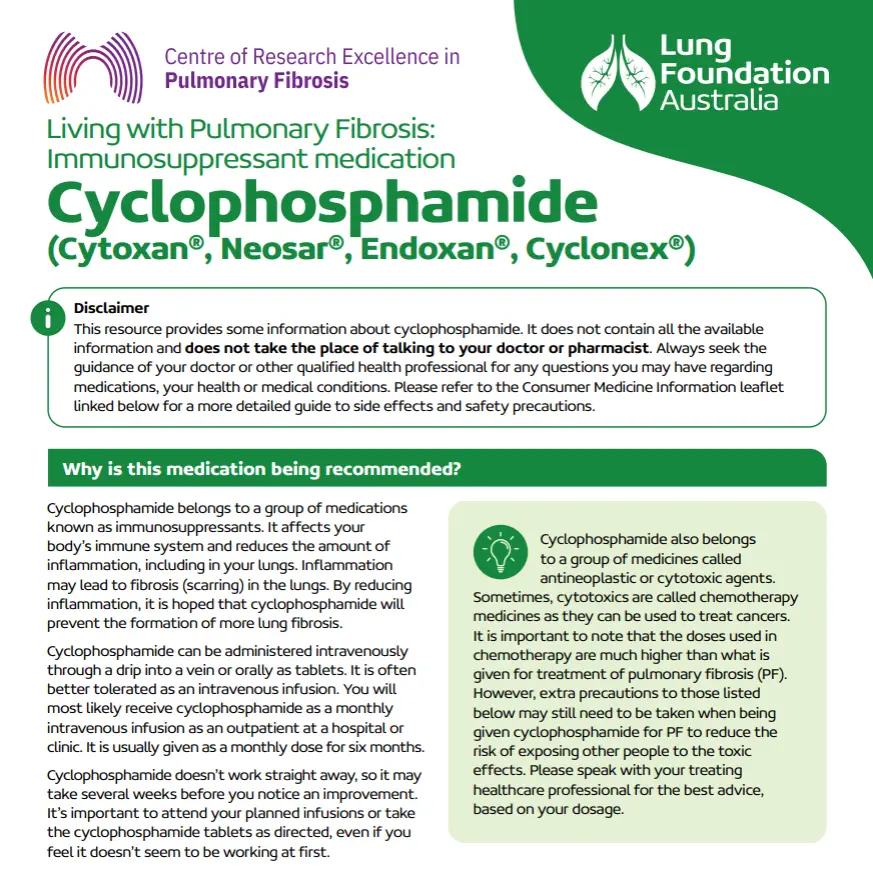This fact sheet has been designed to help people living with pulmonary fibrosis to understand more about the immunosuppressant medication, Cyclophosphamide (Cytoxan®, Neosar®, Endoxan®, Cyclonex®). Cyclophosphamide is an immunosuppressant medication used to manage pulmonary fibrosis by reducing inflammation in the lungs, which may help prevent further scarring or fibrosis. It is administered either orally or more commonly through monthly intravenous infusions over a six-month period. While it does not produce immediate effects, consistent use is essential for its ®. Cyclophosphamide also belongs to a class of cytotoxic or chemotherapy agents, though the doses used for pulmonary fibrosis are significantly lower than those used in cancer treatment.
Before starting treatment, patients must inform their healthcare provider about any allergies, existing medical conditions, or medications they are taking, as cyclophosphamide can interact with other drugs and affect organ function. Vaccinations should ideally be completed prior to starting treatment, and live vaccines should be avoided during treatment. The medication can increase the risk of certain cancers, including bladder and skin cancers, and may also affect fertility in both men and women.
During treatment, patients are advised to stay well-hydrated to protect the kidneys and bladder, avoid infections, and use effective contraception. Alcohol and grapefruit products should be avoided due to potential interactions. Regular monitoring is crucial, including blood tests, urine analysis, and assessments of liver and kidney function. Lung function tests are typically conducted midway and at the end of the treatment course, and skin checks are recommended to monitor for cancer risks.
Common side effects include nausea, vomiting, hair thinning, mouth ulcers, and skin rashes. More serious symptoms such as painful urination, breathing difficulties, or unusual bleeding require immediate medical attention. Patients are encouraged to maintain a personal record of their treatment and to communicate any concerns or side effects to their healthcare team promptly. For more detailed information, patients should consult their doctor or visit the Lung Foundation Australia website.
Was this page helpful?
Good job! Please give your positive feedback
How could we improve this post? Please Help us.
